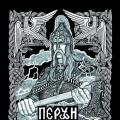The main part of both informative and argumentative speech uses arguments (argument, evidence), so these two types of speeches are very close to each other.
The arguments are divided into two groups:
1) rational arguments, or “case arguments”;
2) irrational (psychological) arguments, or “arguments to a person”, “arguments to an audience”.
Rational arguments include:
a) Facts. Wed: Facts are a stubborn thing. However, it should be borne in mind that the speaker does not always have all the data. Most often, the speaker (or arguer) has only individual facts at his disposal; they can be both typical and particular, and against their background a general conclusion is drawn. Therefore, the argument - fact should be treated critically and analytically. This also applies to statistical data from the results of sociological surveys, since errors in the methodology for collecting this data can lead to a distortion of facts and reality.
b) Appeal to authorities is one of the most common types of arguments. At the same time, the speaker should know that in this audience the authorities mentioned are truly recognized and respected. Currently, in general philosophical questions, the authoritative source is, for example, the Bible, as well as folk wisdom, for example, proverbs and sayings. In scientific matters, the authorities are the founders of this branch of knowledge, major scientists.
c) Laws, theories, axioms traditionally accepted in a given society.
TO irrational Arguments include appealing to the feelings, desires, and interests of the addressee. These arguments most often affect the self-esteem of those gathered (those present are assessed as reasonable, noble, sensible people, i.e. a positive description of the audience is given), material, social interests of the audience, well-being, freedom, habits of listeners.
It is thanks to this type of argument that discussions often move from the case “to the face,” when it is no longer the subject of the dispute that is assessed, but the opponent.
Both types of arguments in rhetoric differ in their strength and are distinguished comprehensive, main and controversial arguments.
Exhaustive arguments, most often one, are those arguments that completely prove the correctness of some opinion or position. Such arguments are rare.
The main arguments are various facts that convince of the reality of something. Theorists of judicial speech note that the strongest arguments should be given at the end of the judicial speech.
Controversial arguments can serve as “for” and “against” the position being proven.
When selecting arguments to prove the proposed position (thesis), the speaker must remember the requirements for arguments. Arguments must be true, consistent, proven regardless of the thesis, and sufficient.
If the arguments are not true, this is either a special technique of deceiving listeners (often a propaganda technique), or their use leads to a logical error, which is called “false reason” or “false fallacy”.
The insufficiency of the arguments leads to the fact that the position to be proven does not follow from the arguments given. The truth of the argument must be proven regardless of the thesis. Violation of this rule leads to the logical error “vicious circle”, when the thesis is proven through arguments, and the arguments are the thesis (The team was successful because it worked successfully).
It is also important for the speaker how definitely, clearly, accurately, and consistently the thesis he puts forward and defends is formulated.
If a thesis is not formulated entirely clearly, it can easily be replaced by another in a dispute, it can be interpreted ambiguously, as a result, “substitution of the thesis” is very often observed in discussions when they move on to discussing another problem. If there is a discussion going on, then you need to make sure not only of the accuracy and definiteness of your own thesis, but also of the thesis put forward by your opponent, to make sure that the opponent’s thesis is understood accurately.
Uncertainty and generality of the thesis formulation can also lead to the second mistake that inexperienced speakers often make - “loss of thesis,” when the speaker easily loses the main thread of reasoning and begins to speak “in general.” A variation of “substitution of the thesis” is the “figure of default”, i.e. hushing up unfavorable facts and events. This deliberate “mistake” is very often found in the interpretation of entire historical periods in the development of society.
So, any proof consists of three elements: thesis, arguments, logical connective (a form of logical connection) between the thesis and arguments. Arguments must not only be selected, but also correctly used to prove the proposed position (thesis).
Distinguish direct And indirect proof.
The direct proof is constructed as follows:
Arguments are given;
From them true judgments are derived;
A true judgment is proven by the thesis put forward by the speaker.
This kind of proof is called inductive proof. It is especially productive when the speaker has irrefutable, clear facts as arguments. This proof is productive because the most convincing effect on the audience, especially in a dispute, is concrete, figurative.
The deductive method of proof most often relies on general provisions known to the audience, the truth of which is beyond doubt. Such a proof thus consists of a known general proposition (major premise), an associated proposition leading to its application, and a conclusion.
For example:
No dishonest person will be elected mayor.
X is dishonest.
Therefore, X will not be elected mayor.
Indirect evidence is that the speaker proves the falsity of the opposing thesis. Firstly, this is done either by proof by contradiction, or by exclusion (the alibi method). The method of proof by contradiction is often used in science (see geometry). The “method of exclusion” is also called the “alibi method”, as it is often used in judicial practice. In this case, the truth of the thesis is proven by identifying the falsity of all possible alternatives (cf., for example, a discussion of candidates for a position).
Based on the above, we can draw a conclusion about methods for refuting the opposite thesis. The simplest and most reliable way is to refute a false thesis with facts. Secondly, the opponent’s arguments are criticized, as a result of which the entire system of evidence collapses; thirdly, the illogicality of the opponent’s conclusion from a false thesis is substantiated.
Does a person who loves only himself have a conscience? How does this love manifest itself in his actions? These and other questions are asked by the Russian Soviet writer E.A. Permyak.
This text raises the problem of selfishness and pride. In it, three brothers received happy hours, thereby gaining the opportunity to manage their time, which could only be obtained by helping and paying attention to others. However, they did not do this and continued to live for their own pleasure, subsequently completely losing the time given to them. “What can he say if he also has no conscience left to start a happy watch with?” This problem is urgent. Nowadays, selfishness has become widespread. People stopped seeing the world around us, they often began to think only about themselves, their work is aimed only at transforming and improving their own lives. “It’s not for nothing that one wise man said: “A man is learned through work.”
All his work, all his deeds and thoughts are aimed at creating a better future for himself.
This problem is found in a large amount of fiction. For example, in N.V. Gogol’s work “Dead Souls” one can see a large number of selfish landowners. One of them is the main character, the landowner Chichikov. From early childhood it was instilled in him that he had to live richly. This gave rise to feelings of pride in him. Chichikov, despite the great big problems of society, poverty and hunger of the peasants, continued to increase his own financial condition. Other landowners did the same. They all worked only for the good of their own lives.
If you turn to B. Vasiliev’s work “My Horses Are Flying,” you can see a completely opposite picture. Dr. Jansen was a sincere and sympathetic person. He was always in a hurry to visit his sick patients, but never in a hurry to leave them. Jansen wanted to help everyone with all his heart. This was shown by his last act. When the little boys fell into a sewer well, Jansen, without thinking about the consequences for himself, rushed to their aid; he understood that he himself was about to die, but this did not stop him. Soon the boys were saved, but Dr. Jansen gave his life for this.
There is no present behind egoism, which means there is no future. Such love does not carry anything valuable; on the contrary, it has a great negative impact on the world as a whole.
Updated: 2018-05-17
Attention!
Thank you for your attention.
If you notice an error or typo, highlight the text and click Ctrl+Enter.
By doing so, you will provide invaluable benefit to the project and other readers.
Hello everyone! I am very glad to see you, my regular readers, as well as new friends!
Today, continuing the conversation about how to write an argumentative essay, let’s talk about an equally important part in our work - about argumentation and arguments in an argumentative essay.
 In previous articles we learned
In previous articles we learned
Think about it, determine its optimal choice. Today we finally start evidence.
Arguments- this is precisely the evidence, arguments, explanations that must be given in support of the thesis. Without clear full evidence essay-reasoning will not work!
Let's remember the types of arguments

Logical (rational) arguments, or arguments are what reflect the logic of the human mind, i.e. real facts, theories, hypotheses, statistical data, laws of nature, eyewitness accounts, experimental results, etc.
Illustrative examples- these are examples from literature and from personal life or the lives of close people and acquaintances, as well as a case that could take place in life under certain conditions.
Authoritative opinion- statements of outstanding people, figures of science or literature, which are perceived by everyone as AXIOMS. Proverbs and sayings as folk wisdom, the experience of the people. See how to format citations here.
Arguments can be both “for” and “against”.
Arguments in favor are direct evidence; they must be accessible, unambiguous, reflect unbiased reality, and be based on authoritative sources.
Arguments “against” a thesis must be convincing, because you need to refute this judgment. Here you will need a certain correctness and a developed sense of tact, because... you will have to criticize authors who support a thesis with which you cannot and do not want to agree!
Phrases and figures of speech to help:
I share the author’s indignation (rejection, admiration) and think that...
A story comes to mind that I heard (read, that happened to me...)
My opinion is confirmed by this fact...
The optimal number of arguments in an essay is three. This will be enough, believe me! But in terms of volume, this part of the essay should be at least 2/3 of the entire text. Arguments must be arranged in a certain sequence. Don’t play all your “trump cards” at once! The last argument should be the strongest.
If the exact text of the quotation is not available for an argument, use indirect sentences. In this way, you will convey the general meaning of the statement and prevent errors in the use of quotes.
If you have two arguments, for example, your life experience and an example from a literary work, then give the literary example first. Describe personal experience after an authoritative opinion.


Start each argument with a new paragraph! Link paragraphs together.
We have collected for you the best literary arguments from many sources in one place. All arguments are divided by topic, which allows you to quickly select the ones you need for your essay. Most of the arguments are written specifically for the site, so you can be sure that you will write a unique essay.
You can read how to write an essay using arguments from our database in our article
Select a topic to get ready-made arguments for your essay:
| Indifference, callousness and indifference towards a person |
| Power and society |
| Human education |
| Friendship |
| Life values: true and false |
| Historical memory |
| Scientific progress and morality |
| Loneliness |
| A person’s responsibility for his actions and the lives of others |
| Man's relationship to nature |
| Fathers and Sons |
| Patriotism, love for the motherland |
| The problem of mass literature |
| Self-sacrifice, love of neighbor, heroism |
| Compassion, sensitivity and mercy |
| The pursuit of knowledge |
| The theme of teachers in Russian literature |
| Man and art. The impact of art on humans |
| Man and history. The role of personality in history |
| Honor and dishonor |
| Reverence, humiliation before superiors |
What are arguments for?
In the third part of the Unified State Exam you need to write a short essay based on the proposed text. For a correctly completed task you receive 23 points, which is a significant part of the total number of points. These points may not be enough for you to enter your desired university. For the task of part “C”, in contrast to the tasks of block “A” and “B”, you can prepare in advance, armed with everything necessary to write an essay on the topic given to you. Previous experience of performing the Unified State Exam shows that the greatest difficulty for schoolchildren when completing the task of part “C” is to argue their position on a given problem. Your success in writing an essay depends on what arguments you choose. The maximum number of points is awarded for reader arguments, i.e. taken from fiction. As a rule, the texts presented in the tasks of part “C” contain problems of a moral and ethical nature. Knowing all this, we can arm ourselves with ready-made literary arguments, making the process of writing an essay as easy as possible. Having the arguments we have proposed in your arsenal, you will not have to frantically retrieve from your memory all the works you have read during the exam, looking for something suitable on the topic and issue. Please note that, as a rule, the allotted time for schoolchildren to complete all the work is not enough. Thus, we will make every effort to get 23 points for the essay in the exam.
“Truth is born in dispute!” - We are all familiar with this statement. But in order for this truth to appear, it is necessary to use a sufficient number of arguments and facts. A fact is a unit of philosophy that does not require proof. And this meaning is familiar to many. What is an argument?
Philosophy
An argument represents the basis of evidence or that part of it on which reality is based or in which the main evidentiary power is contained.
Depending on the purpose pursued in proving, the argument can be of several types:
1. Argument ad hominem (calculated on prejudices). Here, the basis of evidence is personal premises and beliefs, as well as statements.
2. Argument ad veritatem (declaration of truth). Here the proof comes from a statement tested by science, society and objectivity.
3. Argument e consensus gentium. In this case, the proof is what has been believed from time immemorial.
4. Argument a tuto. The proof is decisive in case of insufficiency of other arguments; it is based on the judgment that if it does not help, it will not harm.
5. Argument a baculo (last argument). In this case, if all arguments have been exhausted, the last argument in the dispute is the use of physical force.
Logics

Let's look at what an argument is in logic. Here this concept is a set of judgments that can be used to substantiate the truth of a theory or other judgment. For example, there is a saying: “Iron can be melted.” To prove this, two arguments can be used: “All metals can be melted” and “Iron is a metal.” From these two judgments one can logically deduce the opinion being proved, thereby justifying its truth. Or, for example, the judgment “What is happiness?” The following arguments can be used: “Happiness is different for everyone”, “A person himself determines the criteria by which he classifies himself as a happy or unhappy person.”
Rules
Arguments (A), which are used in the process of proving the truth of a judgment, must be subject to certain rules:
a) arguments must be true opinions and judgments;
b) they must be those judgments whose truth can be established in any case, regardless of opinion;
c) arguments must be the basis of a proven opinion.
If any of the rules are violated, it will lead to logical errors that will make the proof incorrect.
What is an argument in a dispute?
Arguments that are used in a dispute or discussion are divided into several types:
1. To the merits of the matter. In this case, the argument relates to the issue being discussed and aims to justify the truth of the evidence. Here the basic provisions of any theories, scientific concepts and judgments, previously established facts, proven provisions, etc. can be applied.

If these arguments satisfy all the rules, then the proof in which they are used will be logically correct. In this case, the so-called ironclad argument will be used.
2. To a person. Such arguments are used only when there is a need to win an argument or discussion. They are directed to the opponent’s personality and affect his beliefs.
From a logical point of view, such arguments are incorrect and should not be used in a dispute where participants are trying to find the truth.
Types of arguments “to the person”
The most common types of arguments “to a person” are the following:
1. To authority. Here, in the discussion, the opinions and statements of writers, scientists, public figures, and so on are used as arguments. Such arguments may well exist, but they are incorrect. This is due to the fact that a person who has achieved success in a certain area cannot be an authority in other areas, so his opinion here may turn out to be erroneous.

An argument to authority can be applied using the authority of the audience, public opinion, the enemy, and even one’s own. Sometimes a person can invent authority or attribute judgments to people who never expressed them.
2. To the public. Here the person refers to the mood and feelings of the listener. In a dispute, he addresses himself not to his opponent, but to the audience, random listeners, in order to attract them to his side, thus exerting psychological pressure on his opponent. The use of arguments to the public is especially effective when its material interests are affected. So, if one opponent proves that the opponent’s opinion affects those present, then he will win their sympathy.
3. Towards the individual. The arguments are based on the personal characteristics of the opponent, on his shortcomings and advantages, tastes and appearance. If such an argument is used, then the subject of the dispute becomes the identity of the opponent in a negative light. There are also arguments that reveal the merits of the opponent. This technique is often used in courts when defending the accused.
4. To vanity. D This method consists of expressing a large number of praises and compliments to the opponent in order to touch him so that he becomes more flexible and softer.
5. To strength. In this case, one of the opponents threatens to use force or coercion. This is especially true for a person endowed with power or who has a weapon.
6. To pity. What an argument for pity is is quite clear. This is evoking pity and empathy in the enemy. Such arguments are often used by many people who constantly complain about the severity of life and difficulties in the hope of awakening sympathy and a desire to help in their opponent.

7. To ignorance. In this case, one of the opponents uses facts that are unknown to the opponent. Often people are unable to admit that they don’t know something because they believe that doing so will make them lose their dignity. That is why, in a dispute with such people, the argument of ignorance works ironclad.
All of the above arguments are incorrect and should not be used in a dispute. But practice shows the opposite. Most people skillfully use them to achieve their goals. If a person is noticed using one of these arguments, he should point out that they are incorrect and the person is not confident in his position.
Algebra
Let's look at what an argument is in algebra. In mathematics, this concept refers to an independent variable. So, when talking about tables where the value of a function from an independent variable is located, they mean that they are located by a certain argument. For example, in a table of logarithms, where the value of the function log x is indicated, the number x is the argument of the table. Thus, answering the question of what a function argument is, we must say that this is the independent variable on which the value of the function depends.

Argument Increment
In mathematics, there is the concept of “increment of a function and argument.” We already know the concept of “function argument”; let’s look at what argument increment is. So, each argument has some meaning. The difference between its two values (old and new) is the increment. In mathematics this is denoted as follows: Dx:Dx = x 1 -x 0.
Theology
In theology, the concept of “argument” has its own meaning. Here the true proof is the divinity of Christianity, which comes from the prophecies and parables of the wise men, as well as from the miracles performed by Christ. The inextricable connection between thinking and being, as well as the belief that God is the most perfect reality, existing not only in thoughts, but also in the real world, also serves as evidence in the dispute.
Astronomy
In astronomy, the concept of the pericent argument is used. Thus, it represents a certain quantity that determines the orientation of the orbit of a certain celestial body in relation to the equatorial plane of some other celestial body. The latitude argument, used in astronomy, is a certain value that determines the position of a certain celestial body in orbit.

As you can see, it is impossible to give a definite answer to the question of what an argument is, since this concept has several meanings, which depend on the area in which this concept is used. Whatever argument a person uses to prove the truth in a discussion or dispute, it must have logical premises and be based on proven facts. Only in this case will the dispute be correct and true. In any other case, the dispute will be incorrect, and the opponent who uses such arguments will not be sure that he is right.
The complexity of the arguments that are used to prove the truth of beliefs, as well as the entire process of justification, is called argumentation, the main goal of which is to attract the opponent to one’s side in the discussion of a certain problem.




